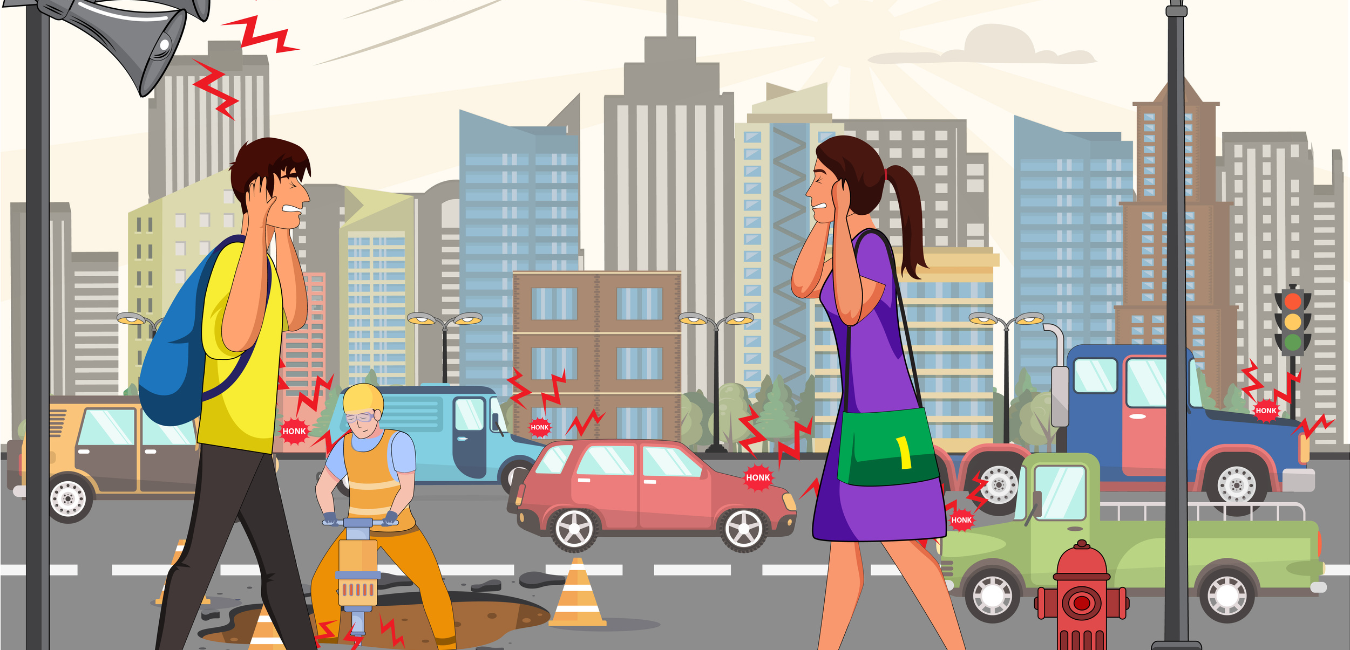Was Hearing Better Your New Year’s Resolution?
From good habits to better health, the new year is all about a fresh start — if you could only maintain your resolution and avoid falling back on old habits. But not all new year’s resolutions should doom you to disappointment once the new year feeling has worn off. Small, easy steps, like simply taking better care of your hearing, can do wonders throughout the year.
Prevent Hearing Loss: The New Resolution You Need to Try
Wondering where to start on your journey to better health? While many people focus their energy on balanced eating and living a healthy lifestyle, one of the most overlooked health goals is improving hearing to prevent hearing loss.
From age-related causes to occupational hazards, lifestyle risks, and underlying health conditions, hearing loss affects a lot more Canadians than you think. As you revel in the fresh start that the new year brings, it’s worth considering how you can prevent hearing loss and take hearing health more seriously.
Ring in the new year, loud and clear. See why taking steps to hear better, prevent hearing loss, and protect your hearing health is the one new year’s resolution you should consider making — and following through.
Hearing Loss in Canada at a Glance
Did you know that 54% of Canadians — or 8.2 million of the population — aged 40 to 79 suffer from at least mild hearing loss? While approximately 4 in every 1,000 Canadian babies are born with hearing loss or develop early progressive childhood hearing loss, this condition is significantly more age-related.
Hearing loss is the third most prevalent chronic condition among seniors. It’s also the most widespread disability that progresses with age. It is also twice as common in people with diabetes and has increased the risk of falling.
But your hearing doesn’t have to go downhill as you get older. Severe hearing loss is preventable with hearing tests and early detection and treatable with the right hearing aids. These devices not only restore your ability to hear but reduce the risk of cognitive decline. And with the new year upon us, there’s no better time to get your hearing health back on track.
Better Hearing Health Leads to a Better Life
Hearing is connecting. It allows you to communicate with family and friends, maintaining strong relationships vital to your well-being.
A 2017 study proved how vital good hearing is, especially with age. Among older adults who suffer from hearing impairment, it was found that their hearing loss causes psychological distress — and more so for men than women.
Better Hearing and Physical Function
Similarly, age-related hearing loss is also associated with poorer — and quickly declining — physical function. A 2021 study of older adults with hearing impairment found poor balance and lower endurance, even in light activities like walking, compared with those with normal hearing. These findings suggest that addressing loss can be a useful intervention for slowing the age-related physical function decline.
These studies show that better hearing is essential: from everyday conversations to auditory cues in your environment, hearing enables social interactions, as much as it allows you to respond quickly to your surroundings. This also makes early detection of age-related hearing loss more important, as treatment with hearing aids can greatly improve quality of life.
Hear Better This New Year: Taking Steps Towards Better Hearing
How well do you hear? Do you find yourself turning up the volume way louder, only for others to complain that the TV or music is blaring? Are you finding yourself in misunderstandings over what you heard versus what was said?
A quick hearing quiz can tell you a lot about your hearing health — and whether it’s time to book a hearing test. Ask yourself these questions:
- Does it sound like people you talk to are mumbling? Do you have to ask them to slow down or repeat themselves constantly?
- Do you have trouble hearing someone when they are not looking at you directly? How about when they’re wearing a mask?
- Do you find yourself needing to turn the volume up while others complain that it’s too loud?
- Do you hear a ringing or buzzing sound in your ears, even when you’re alone, or you can’t find a possible external source of the noise?
- Do you find yourself just smiling and nodding along in conversations even when you have no idea what is being talked about because the sound is drowned out by other noise?
If you answered yes to any of these questions, you might be experiencing difficulty hearing. The good news is, now is the right time to start your journey towards better, healthy hearing — and take early steps to prevent hearing loss before it progresses. Make good on your new year’s resolution by paying attention to how well you hear, and book a hearing test for early detection and intervention.
Help a Loved One With Hearing Loss This Year
In most cases, hearing loss progresses gradually and is difficult to self-identify. Even as it occurs, the auditory center of the brain, combined with visual cues like lip reading, learns to compensate, allowing people with hearing loss to appear as though they maintain normal hearing function.
Hearing loss only becomes apparent in interactions with loved ones who notice behaviours like turning up the volume, needing people around them to repeat themselves, and repeated miscommunication.
If you think your loved one is experiencing hearing loss, it’s important to be there for them. Being supportive and helping them book a hearing test to learn about their treatment options goes a long way in treating and preventing the progression of hearing loss and closing the gap between diagnosed cases and actual numbers. As you look forward to what the new year brings you and your loved ones, make it your new year’s resolution to take steps towards better hearing health and a better life — together.
To learn more about treating or preventing hearing loss, and to hear better this new year, call Hearing Solutions at 1-888-811-9979 or contact us here.
Works Cited
Ramage-Morin, P., Banks, R., Pineault, D., & Atrach, M. (2019, August 21). Unperceived hearing loss among Canadians aged 40 to 79. Retrieved January 11, 2022, from https://www150.statcan.gc.ca/n1/pub/82-003-x/2019008/article/00002-eng.htm
Cruickshanks, K. J., Wiley, T. L., Tweed, T. S., Klein, B. E. K., Klein, R., Mares-Perlman, J. A., et al 1998;. Prevalence of hearing loss in older adults in Beaver Dam, Wisconsin. The Epidemiology of Hearing Loss Study. American Journal of Epidemiology,. 148:879-886.
Niazi, Y., Ejaz, B., & Muazzam, A. (2020, October). Impact of hearing impairment on psychological distress and subjective well-being in older adults. Retrieved from https://www.ncbi.nlm.nih.gov/pmc/articles/PMC7501003/
Pablo Martinez-Amezcua, M. (2021, June 25). Age-Related Hearing Impairment and Physical Functioning in Older Adults in the US. Retrieved from https://jamanetwork.com/journals/jamanetworkopen/fullarticle/2781351
Rosenberg K. (2021). Hearing Impairment Linked to Poorer Physical Function in Older Adults. The American journal of nursing, 121(10), 51. https://doi.org/10.1097/01.NAJ.0000794256.43996.2f







